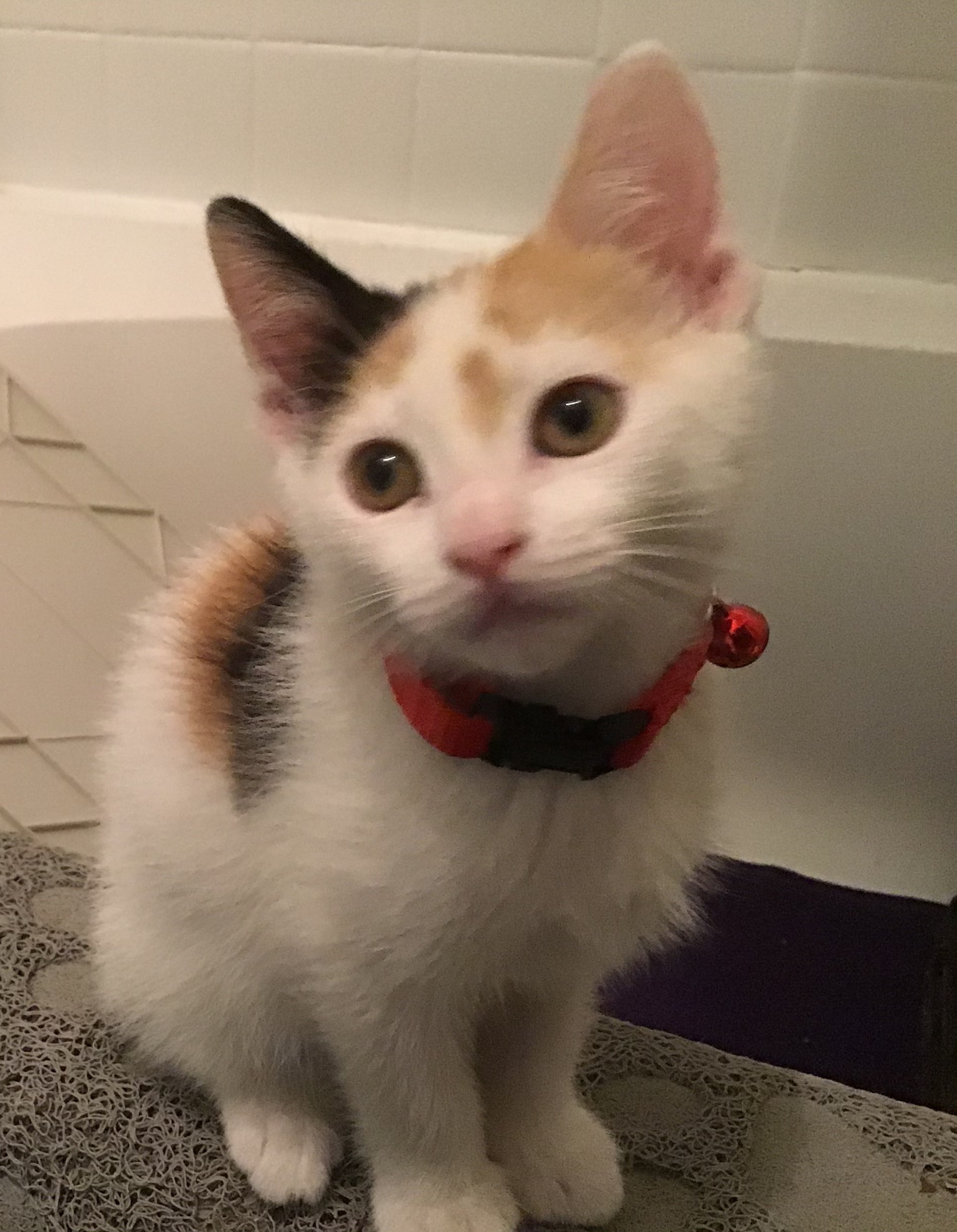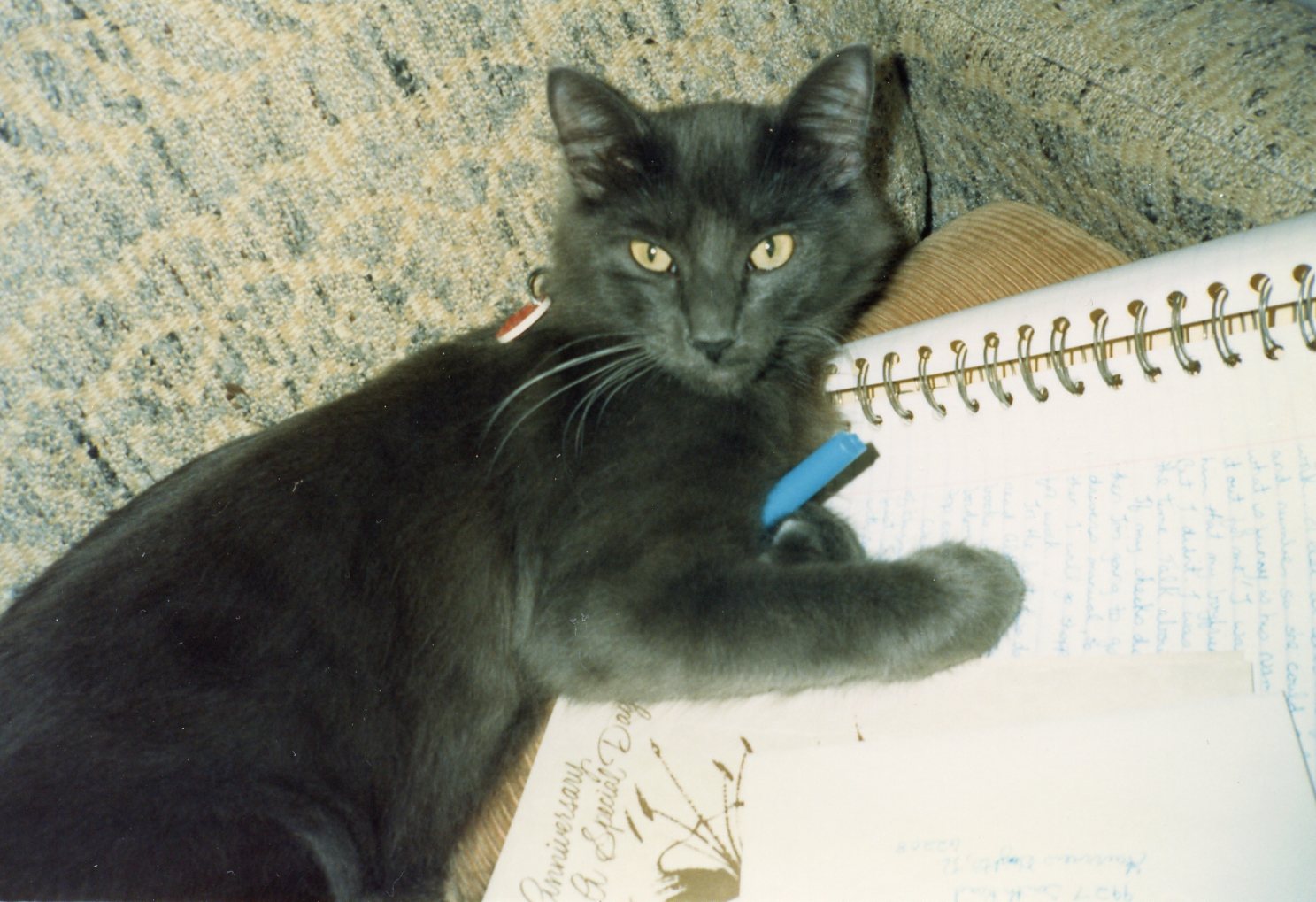House training a kitten is usually pretty easy. If you have adopted an older cat, it is important to follow the same steps.
- Make sure the litter box is in a quiet place where the cat won't be disturbed.
- Do not place it too close to food and water bowls. Cats don't like to eat where they eliminate.
- Make sure the cat knows where the litter box is located.
- Clean the box regularly.
When you are unable to watch the kitten or new cat, confine it to one room or a large crate (when you are sleeping or out of the house). When you cannot watch him closely, put him in his kennel so that he will not have an opportunity to make a mistake. Make the kennel or small room enjoyable with bedding, chew toys, scratching post, water and food bowl and litter box.
For small kittens, I have used a large dog cage. The box will be close to the food/water, but it's for short periods of time and the kitten will do fine. Confining them at night and when you can't keep an eye on them is not only for house training, but also for safety. Small kittens can get in, under and behind furniture that an adult cat cannot. They also chew things, like electrical cords that can be dangerous to their health. Keep your kitten supervised at all times, until they are old enough to trust.
For an older cat, you may want to confine them to a single room when you cannot watch them and at night. Again, make sure they have access to the litterbox, food/water, scratching posts and toys. This will help prevent accidents and allow the cat to acclimatize to it's new home.
If the cat is not using the litter box, review the following:
- Are there enough boxes for every cat in the house? Experts actually recommend one box per cat plus one. This is not always feasible, but at least one box per cat is advised.
- Is the box in a quiet location where the kitten isn't likely to be disturbed, frightened or harassed by other pets?
- Are you cleaning the box regularly?
If your kitten or new cat is eliminating outside the box, but close to it, there may be a health issue. Take them to your vet right away.
- Parasites and urinary infections may cause some cats to stop using the litter box.
- If you are having problems with litter box training, the first step is to rule out any illness. Please contact your vet for an appointment.
- Another possible problem is marking behavior. Intact cats, especially males, but sometimes females, will spray urine to mark territory. Often spaying and neutering these animals will decrease or eliminate the problem. However, the longer they practice the behavior, the more likely they are to continue it. It's best to spay and neuter early, before marking behavior begins.
- Sometimes cats will eliminate outside the box due to behavior problems related to stress. Cats can even develop urinary tract infections due to stress. Treating the infection may eliminate the problem, but identifying and removing the cause of the stress is necessary to prevent recurrence. If this doesn't work, your veterinarian may recommend additional medication to help relieve your cat's stress.
We cover litter box training in the new kitten/cat classes. Check them out!












Shouldn't Your Pet Have Pawfect Manners?
You can have a well-behaved pet, let me show you how.
Schedule Your Class!(281) 440-6818
judy.pawfectmanners@gmail.com